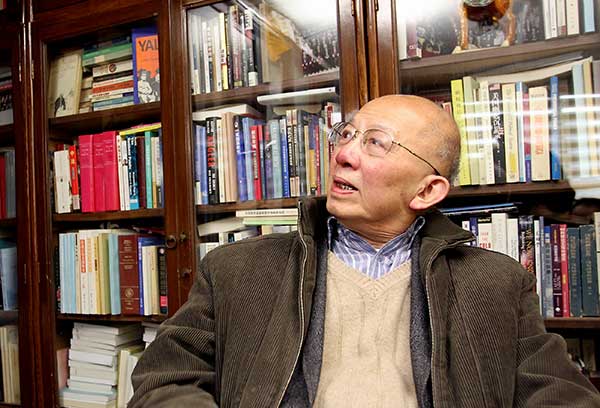Going far beyond words
 |
|
[Photo by Zhang Wei/China Daily] |
For students of English as a second language, Mei suggests that "grammar is something one should have some knowledge of, but one should not be too rigid about it. The more you dig into it, the more perplexed you'll be."
There's a "threshold" in language learning, he says, beyond which one will attain a certain freedom in expressiveness. And that, according to him, is "the feel of the language".
Instead of cracking the codes of grammar, Mei advises students new to English to take up reading, specifically simplified material that uses no more than 3,000 words, equivalent to books in the young adults section.
In Grades 1 and 2, from 30 to 40 of these volumes should be taken up, of which a dozen must be read several times - to the point the student can recall its phrases and sentences.
"That is when you can shake off the sway of your native language," he says.
For advanced students, Mei recommends essays as the main reading material, "rather than fiction".
Essayists come from more than the realm of literature. He cites Winston Churchill, whose nonfiction writings wielded wide influence.
"We like to study John F. Kennedy's inaugural speech, but it follows the literary tradition of the genre in its structure and its sentence patterns," he says.
"Language is power. When you become aware of that, the teacher should let go and you'll know what to absorb from your reading."
Mei attributes Barack Obama's initial success at his run for presidency partly to his talent in maximizing the power of language to communicate with the American public.
"China has achieved a great deal in elevating English as a second language. But we have not come up with a full set of theories on the methodology. Each school may have its own practice," Mei opines.
"We cannot depend on the West for theory because it should come from practice, which we have in abundance. Sticking to one linguistic theory from the West won't get you where you want to be."






















